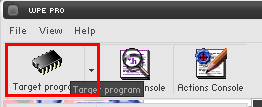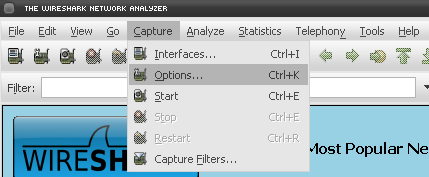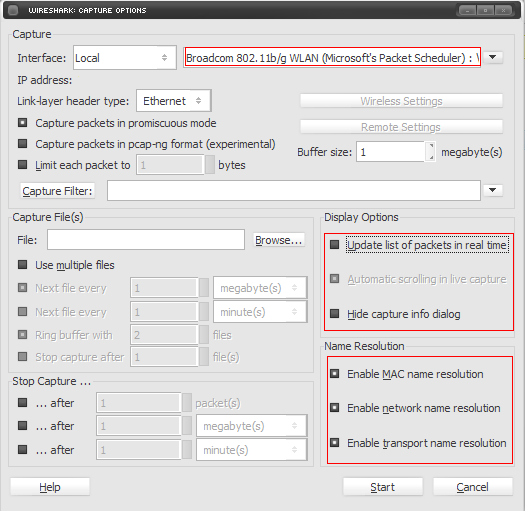Connectivity Guide: Difference between revisions
m →Syntax |
m →Syntax |
||
| Line 133: | Line 133: | ||
''' Following configs are optinal''' | ''' Following configs are optinal''' | ||
; addTableFolders <folder path> | |||
: The same effect as with --tables argument. kRO serverType uses korean tables by default; for english ones, you can use <code>tables/translated/kRO_english</code> or <code>tables/iRO</code> | |||
captcha <boolean flag> | captcha <boolean flag> | ||
chatLangCode <boolean flag> | chatLangCode <boolean flag> | ||
Revision as of 12:32, 3 June 2010
Getting Server Information
OpenKore comes with a list of official servers information only, because of the high amount of private servers, it is impossible to have and keep them updated, so private servers players should follow this guide to get and update their server information.
Before continuing, read the list of unsupported servers. Your server might have anti-bot protection resulting in not being supported by Openkore.
OpenKore needs the following information about the Ragnarok Online server before it can login:
- The server name
- The server's address (IP address or host name) and port number
- The server's master version number
- The server's server version number (not the same as the master version number)
- The server's character encoding
- The server's type version.
There are two ways to collect server information, which is using WPE or Wireshark.
WPE (Winsock Packet Editor)
1. Download WPE and extract it.
2. Open your ragnarok but don't login yet! Leave it on the login screen and open WPE.
3. At WPE's window, click on Target Programs button.
4. A window will open, search for the server's executable and double-click it.
- Note. Some servers "hide" their executables by renaming it (like from xxxRO.exe to xxxx.dll or xxxxx.bin), so don't worry if the executable isn't a .exe one.
5. In the WPE's window, click on Play button.
6. Switch to your Ragnarok's window, put and try to login.
- Note. Valid login information are not needed.
7. Back to WPE's window, click on Stop button
8. A window will open with some packets. The server's version and master_version, IP and port can be found there. The packets will be different on each server, but most of the time it will start with 64 00. These are the packets that contains the version and master_version. Write them down because they are going to be used later.
- Legend:
- Version.
- IP
- Port
- Master version
9. See Converting Hexadecimal to Decimal numbers to convert the master_version and version before configuring Kore.
Wireshark
1. Download and install Wireshark.
2. Open your ragnarok but don't login yet! Leave it on the login screen and open Wireshark.
3. At Wireshark's window, go to Capture > Options on the upper menu or press Ctrl + K.
4. In the top right box, select the interface that will be used to capture on. If there isn't any specific interface to use, select the one whose IP address is equal to the your ip address or is not unknown. Alternatively you can try all of them and use the one that records the packets. Set the others settings like the images bellow:
5. Click on Start button and go back to the Ragnarok window and login.
- Note. Valid information are not needed.
6. Back to Wireshark and click on Stop button.
7. In Wireshark main window, you can see the TCP segments that were captured. Fill in the packet filter, but what to fill in depends on the username you used to login.
- Enter this in the "Filter" text box:
eth contains "xxxxxx" or eth contains xxxxxx
- Replace xxxxxx with the username that was used to login and press enter. In the example bellow, username was Mushroom.
- File:filter.png
8. There will be only one entry now, click on it to show some information about it. This is where the IP and port is stored.
- Write down the IP and port.
9. On the entry again, right-click on it and go to Follow TCP Stream.
10. A new window will open, in the bottom left, select Hex Dump.
11. These are the login packets. Take a look at it and write down the packets that contains the version and master version numbers. They are marked on the image bellow.
12. See Converting Hexadecimal to Decimal numbers to convert the master_version and version before configuring Kore.
Converting Hexadecimal to Decimal numbers
Master_version and server version collected from the login packets are in hexadecimal number (base-16) and Kore expects a decimal number (base-10), so converting those numbers are needed before Kore can read them.
Converting can be made using Windows' calculator or any other site that has a hex to dec calculator.
1. Open Windows calculator Start > Accessories > Calculator.
2. Go to View on the upper menu and click on Scientific.
3. Check the circle beside Hex.
4. On the calculator, type the number that you got for master_version and version. In the example, master_version hexadecimal number is 10.
5. Check the circle beside Dec.
6. After checking, the number shown should automatically be converted from hexadecimal to decimal.
- You must convert master_version and version.
Configuring Openkore
OpenKore reads server information from a file named servers.txt. The file is on tables folder.
If your server is not listed in the file, then add a new entry. If your server is already listed, then modify the existing entry.
Syntax
[<server name>] ip <number/host> port <number> version <number> master_version <number> serverType <serverType name> serverEncoding <enconding> charBlockSize <number> Following configs are optinal
- addTableFolders <folder path>
- The same effect as with --tables argument. kRO serverType uses korean tables by default; for english ones, you can use
tables/translated/kRO_englishortables/iRO
captcha <boolean flag> chatLangCode <boolean flag> clientHash <hex string> gameGuard <flag> private <boolean flag> paddedPackets <boolean flag> paddedPackets_attackID <packet switches> paddedPackets_skillUseID <packet switches> secureLogin <boolean flag> secureLogin_type <type> secureLogin_requestCode <hex string> secureLogin_account <boolean flag> storageEncryptKey <encrypt key> recvpackets <file name>
- [<server name>]
- The name of the server that you want to bot. The name must be between [ ].
- ip <number/host>
- Server's login IP.
- port <number>
- Server's login port number.
- version <number>
- Server's version (converted from hex to decimal).
- master_version <number>
- Server's master_version (converted from hex to decimal).
| The following documentation describes a feature that was greatly changed in SVN trunk (latest development version) since the last release. It may work differently or not be available if you're using 2.0.7 or any older version. |
- Server's type. Each official server has its own serverType, private servers must use kRO serverTypes according to executables dates.
- serverEncoding
- Characters encoding type. The character encoding cannot be automatically detected, but here's a list of possible character encodings that you can use:
Encoding Language used Western Language which uses a Roman-based alphabet. Example: English, German, French, Portuguese, Indonesian, etc. Simplified Chinese Simplified Chinese. Traditional Chinese Traditional Chinese. Korean Korean Russian Russian, or a Cyrillic-based language. Japanese Japanese Thai Thai
- charBlockSize <value>
- Configures character name size. Currently known values are 106, 108 or 112 (renewal servers). Set this option if Openkore is having problems showing character name, job and level when selecting the character.
- addTablesFolder <path>
- Configures Kore to load tables file from the specified path.
- captcha <boolean flag>
- Configure Kore to use the captcha 'protocol'.
- chatLangCode <boolean flag>
- Removes language code on messages.
- private <boolean flag>
- Set this option if Openkore connects to a wrong map-server IP. Usually for private servers.
- recvpackets <file name.txt>
- Configures file's name for recvpackets.
Example
[MushroomRO] ip 127.0.0.1 port 6900 master_version 16 version 20 serverType 8_4 charBlockSize 108 serverEncoding Western recvpackets mush-recvpackets.txt


